Featured
- Reset filters
- 647 results
- (-) Global
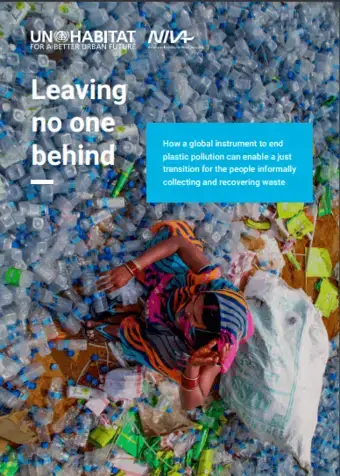
Technical Report
Leaving no one behind - How a global instrument to end plastic pollution can enable a just transition for the people informally collecting and recovering waste
2022
This report provides an overview on the importance of the Informal Waste and Recovery Sector (IWRS) for ending plastic pollution. It outlines how the current negotiations towards a global instrument to end plastic pollution can leverage a just transition of the IWRS. It calls for the just transition of the IWRS to be fair, inclusive, and equitable, generating and preserving decent work opportunities in a way that leaves no one behind.
Read now
Learn more
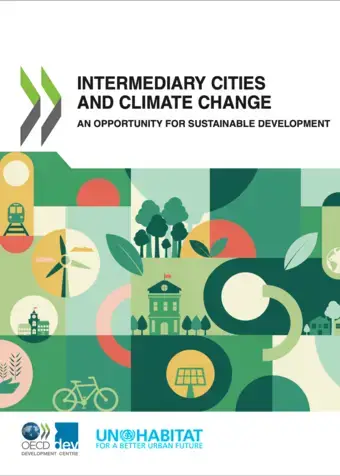
Technical Report
Intermediary Cities and Climate Change: An Opportunity for Sustainable Development
2022
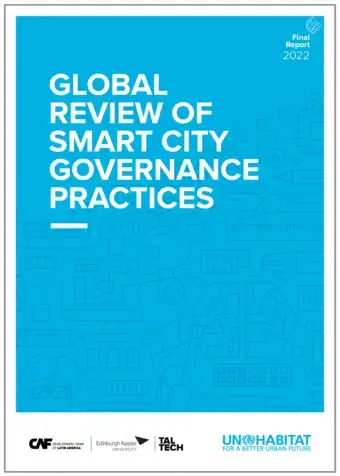
Technical Report
Global Review of Smart City Governance Practices
2022
Through smart city initiatives, digital technologies are increasingly applied in cities to modernize city operations and transform service delivery. This report features findings from a systematic literature review and a global online survey completed by approximately 300 respondents, who have reported on the smart city governance practices of more than 250 municipalities in Africa, Asia, Europe, Latin America, and North America.
Read now
Learn more
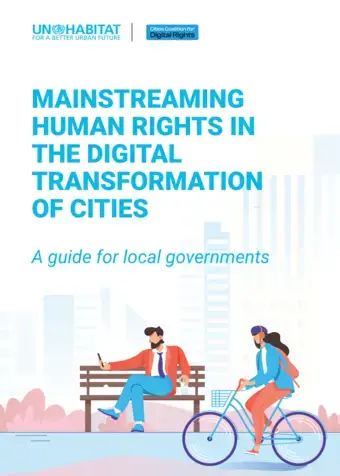
Toolkits, Manuals and Guides
Mainstreaming human rights in the digital transformation of cities – A guide for local governments
2022
People living in cities around the world use a wide range of municipal services on a regular basis. Services provided to residents such as garbage collection, the provision of playgrounds, parking spaces, streetlights, affordable housing, social support and public transport all require a local government that is committed to facilitating good quality of life in the city. As city governments undergo digital transformation, the digital and physical aspects of the city become more closely…
Read now
Learn more
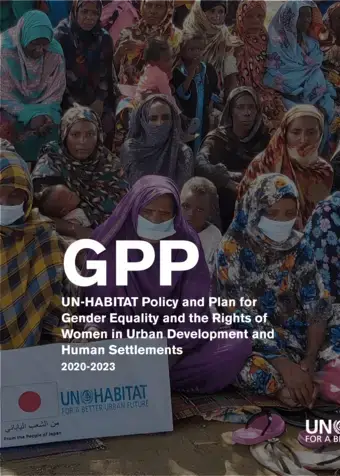
Policy and Strategy
GPP: UN-Habitat Policy and Plan for Gender Equality and the Rights of Women in Urban Development and Human Settlements 2020 - 2023
2022
The Gender Policy and Plan (GPP) 2020-2023 is UN-Habitat’s roadmap for promoting
gender equality throughout its work. It is aligned with the organizational Strategic
Plan (2020-2023) and supports the New Urban Agenda (NUA) and the Sustainable
Development Goals (SDGs) through its contribution to their implementation. The GPP
elaborates the gender dimensions of the programmatic results and the relevant
indicators for measuring success, as well as steps to…
Read now
Learn more
gender equality throughout its work. It is aligned with the organizational Strategic
Plan (2020-2023) and supports the New Urban Agenda (NUA) and the Sustainable
Development Goals (SDGs) through its contribution to their implementation. The GPP
elaborates the gender dimensions of the programmatic results and the relevant
indicators for measuring success, as well as steps to…
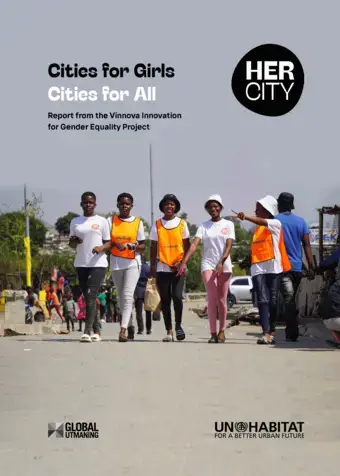
Technical Report
Cities for Girls, Cities for All
2022
Cities for Girls, Cities for All is the report from the Vinnova Innovation for Gender Equality Project. It show cases the results of the Her City toolbox, the implementation of our partnership projects, but also provides guidelines for gender and intersectional sensitive participatory planning, design and implementation.
Read now
Learn more
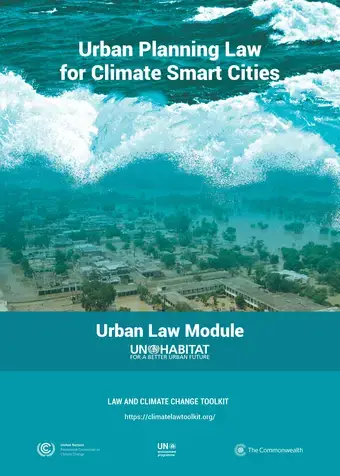
Toolkits, Manuals and Guides
Urban Planning Law for Climate Smart Cities: The Urban Law Module of the Law and Climate Change Toolkit
2022
Urban areas account for two thirds of greenhouse gas emissions and energy consumption, making them major contributors to climate change. Cities are already suffering from extreme weather events, flooding, subsidence, storms, heat waves, water scarcity, droughts, and sea-level rise, among other climate change effects. Additionally, the laws, institutions, and policies governing urban planning in cities have unintended effects on their capacity to adapt to the changing climate.
Read now
Learn more
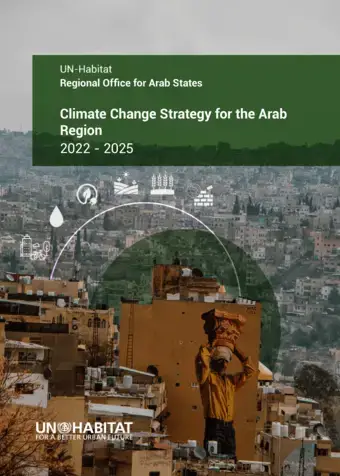
Policy and Strategy
Climate Change Strategy for the Arab Region 2022-2025
2022
The purpose of UN-Habitat’s Climate Change Strategy for the Arab Region (2022-2025) is to support curbing the impact of climate change on Arab cities and communities through resilience building, reduction of urban vulnerabilities, advancing adaptation and mitigation actions for the development of sustainable cities and mainstreaming climate considerations in urban policies and plans.
Read now
Learn more
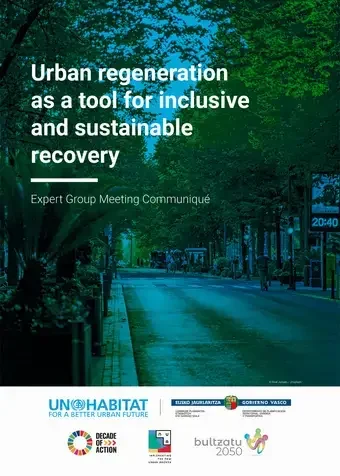
Activities Report
Communiqué of the Expert Group Meeting Urban Regeneration as a tool for Inclusive and Sustainable Recovery
2022
Document
Communication from the Embassy of Ukraine in the Republic of Kenya for the period of 23 March 2024 to 10 April 2024
Опубликовано апреля 19th, 2024
Read now
Press Release
Global experts start work on UN guidelines on people-centred smart cities
Опубликовано апреля 19th, 2024
Read now